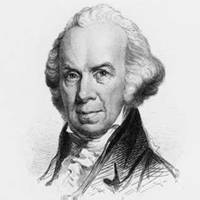| American Antiquarian Society | |
|---|---|
 View of Antiquarian Hall from the corner of Park Ave and Salisbury St. | |
 | |
| 42°16′38″N71°48′39″W / 42.27722°N 71.81083°W | |
| Location | 185 Salisbury Street, Worcester, Massachusetts, United States |
| Type | Research library |
| Established | 1812 |
| Architects | Winslow, Bigelow & Wadsworth |
| Branches | 1 |
| Collection | |
| Size | 4.5 million |
| Access and use | |
| Population served | 1,211 (Membership, 2024) |
| Other information | |
| Director | Scott E. Casper |
| Employees | 45 |
| Website | americanantiquarian.org |
American Antiquarian Society | |
| Area | 1.8 acres (7,300 m2) |
| Built | 1910 |
| Architectural style | Colonial Revival |
| NRHP reference No. | 68000018 |
| Significant dates | |
| Added to NRHP | November 24, 1968 [1] |
| Designated NHL | November 24, 1968 [2] |
The American Antiquarian Society (AAS), located in Worcester, Massachusetts, is both a learned society and a national research library of pre-twentieth-century American history and culture. Founded in 1812, it is the oldest historical society in the United States with a national focus. [3] [4] Its main building, known as Antiquarian Hall, is a U.S. National Historic Landmark in recognition of this legacy. [5] The mission of the AAS is to collect, preserve and make available for study all printed records of what is now known as the United States of America. This includes materials from the first European settlement through the year 1900. [6]
Contents
- History
- History of printing
- Past leaders
- Notable members
- Awards
- See also
- References
- Further reading
- External links
The AAS offers programs on a wide variety of subjects including but not limited to Environmental History, Indigenous Peoples Studies, and American Religion for professional scholars, pre-collegiate, undergraduate and graduate students, educators, professional artists, writers, genealogists, and the general public. [7]
The collections of the AAS contain over four million books, pamphlets, newspapers, periodicals, graphic arts materials and manuscripts. The Society is estimated to hold copies of two-thirds of the total books known to have been printed in what is now the United States from the establishment of the first press in 1640 through the year 1820; many of these volumes are exceedingly rare and a number of them are unique. [8] Historic materials from all fifty U.S. states, most of Canada and the British West Indies are included in the AAS repository. An act of congress requires that one copy of the journals of the Senate and of the House of Representatives along with other documents are to be transmitted to the Governor of Massachusetts for the use and benefit of the Society. [9] One of the more notable volumes held by the Society is a copy of the first book printed in America, the Bay Psalm Book. [10] AAS has one of the largest collections of newspapers printed in America through 1876, with more than two million issues in its collection. [11]
Its collections contain the first American women's magazine edited by a woman, The Humming Bird, or Herald of Taste. [12] The collection also contains over 60,000 pieces of sheet music, over 300 games (including puzzles, board games, and cards), a large historical pottery collection, extensive New England diaries and personal papers, a diverse collection of photographs dating from the 1830s to the 1920s, and children's literature dating back to the 1650s. [13]





